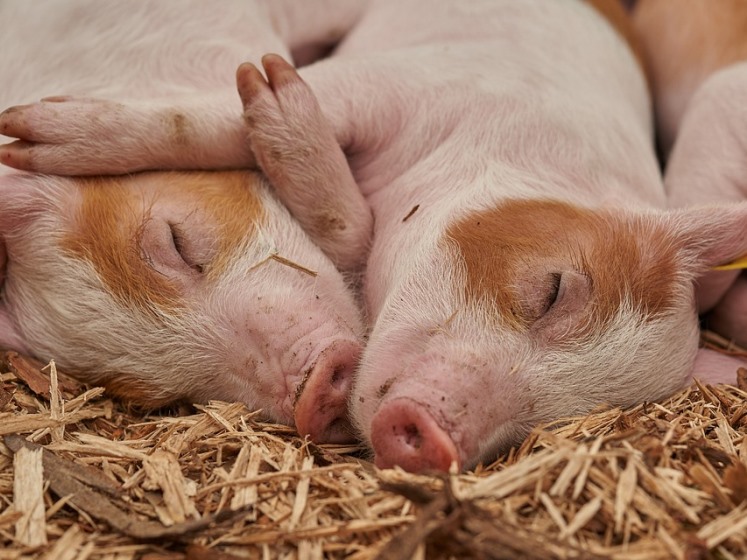 Two sleeping piglets. RoyBuri
Two sleeping piglets. RoyBuri
People find the idea of eating pork less appealing after being exposed to the idea that pigs have some human-like characteristics, but are not put off of eating beef when cows are depicted in similar ways, according to new research by the Department of Psychological and Behavioural Science.
The paper, published in the journal Appetite, reveals that when pigs are shown as having the ability to make friends with humans or one another, people feel guilty about eating pork and say that they would be less likely to go to a restaurant that offers pork dishes or buy a pork product.
However, people’s attitudes about eating beef are not significantly affected when they are given similar information that cows can make friends.
Feiyang Wang, a researcher at LSE and the paper’s lead author, said: “Pigs have long been anthropomorphised and depicted as being highly social in films, books and cartoons such as Babe and George Orwell’s Animal Farm, in a way that cows have not. This may be why we see such a difference in the way people respond to the idea of eating these two kinds of animals even when they are portrayed in similarly human-like terms.”
Dr Frédéric Basso, Assistant Professor in LSE’s Department of Psychological and Behavioural Science and co-author of the paper, said: “We were primarily interested in how anthropomorphism influences the way people think on an unconscious level. Previous research has shown that exposure to scientific knowledge about pigs’ intelligence doesn’t discourage meat eaters from eating pork. Therefore, inspired by the metaphor ‘animals are friends’, we decided to anthropomorphise pigs to see whether, by doing so, we could affect people’s feelings in a way that would change their everyday attitudes where rational thinking doesn’t.”
For the research, different groups of participants were shown websites for fictitious cafés, restaurants and meat brands selling pork or beef. After reading information about how the animals were reared, they were asked questions such as how likely they would be to visit the café or eat the product and how tasty they thought the food would be.
For example, in one study, participants were shown the web pages for ‘Mr Piggy’s Café’ where customers could play with piglets. Participants were told that the piglets were like dogs and loved playing interactive games. One set of participants were then shown that the café’s breakfast special was pork sausages and smoked bacon rolls while the others were shown that the special was a vegetarian dish of spinach omelette and baked egg rolls.
Participants who read that Mr Piggy’s served pork, expected that eating there would be less enjoyable and said that they would be less likely to patronise it than the participants that read that the café served a vegetarian dish.
In another study, participants were divided into three groups and each looked at different web pages for a pork brand called Mr Piggy’s, which offered ‘delicious pork chops’. One group read that the pigs were reared on farms where they played games with staff, implicitly suggesting they were ‘friends’ with them. Another group read that the pigs were friends with each other and the third group read that the pigs were raised to excellent welfare standards.
The participants in the two groups that read that the pigs had the ability to develop friendships – either with the staff or one another – said they would be less likely to buy products from the pork brand.
In follow-up studies, the researchers found that guilt was putting people off the idea of eating pork from pigs that were anthropomorphised.
A similar experiment was run for a beef brand called ‘Mr Moos’, but the idea that cows could be friends with each other did not impact how likely the participants were to buy its products.
Dr Frédéric Basso said: “We might find in the future that other metaphors are more successful in anthropomorphising cows, such as one that revolves around the idea that animals have kin relationships – that they are part of families.“
Data was collected on participants from the United States. Vegans, vegetarians, people who eat fish but not other meat, and people who do not eat pork or beef for religious reasons were excluded from the study.